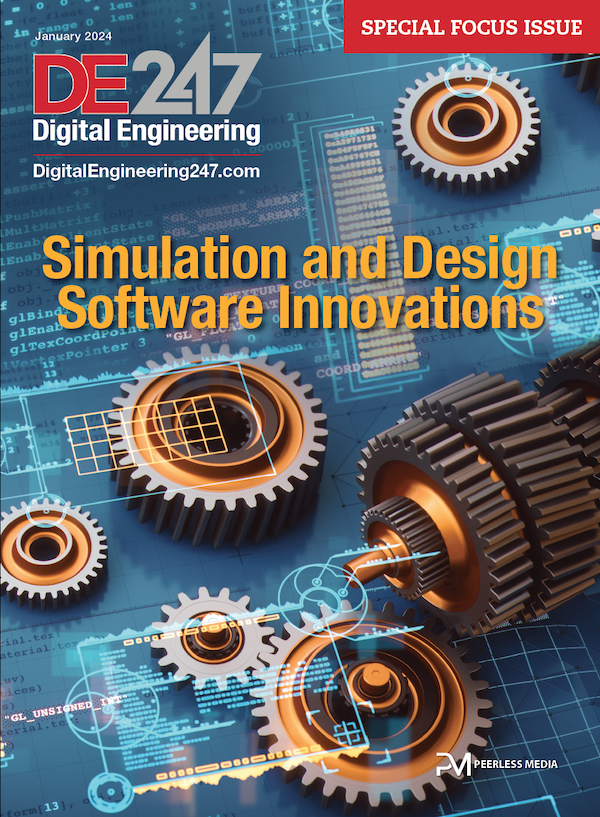
The Embry-Riddle Aeronautical University’s EcoCAR design team brought home the Best Final Technical Report despite the shutdown. Image courtesy of Embry-Riddle.
Latest News
August 14, 2020
In March, like many other collaborative engineering projects, the four-year EcoCAR competition stalled due to the Coronavirus outbreak.
Part of the U.S. Department of Energy (DOE) Advanced Vehicle Technology Competition (AVTC) series, the competition “will challenge 12 university teams to apply advanced propulsion systems, as well as connected and automated vehicle technology to improve the energy efficiency, safety and consumer appeal of the 2019 Chevrolet Blazer—Specifically for the carsharing market,” according to the event homepage.
While COVID-related shutdowns made in-person mechanical work impossible, many participating teams adapted to remote working conditions and made progress in the digital realm, helped by simulation software. One of them is the Embry-Riddle Aeronautical University student design team, dubbed The Embry-Riddle EcoEagles, which brought home an award as the runner up to the Best Final Technical Report.

Sensor Fusion for the EcoCAR
The Embry-Riddle team relies on SimuLink, Driving Scenario Designer, and Automated Driving Toolbox from MathWorks to test the effectiveness of sensor placement and control strategy, among others. The software programs are donated to the teams by MathWorks, a sponsor of the event.
Alex Shiffer, the team's Connected and Automated Vehicles Lead, recalled, “We got the car in August 2019. We were working really hard to fit our hardware onto the car so we could ship it to Arizona for the race in May,” explained Alex. “But that got cancelled, and we couldn't even work on the vehicle beyond spring break.”
The test drive was supposed to take place in the GM Desert Proving Ground, but the organizers announced, “Out of an abundance of caution, the EcoCAR Year 2 Competition scheduled for May 11-21, 2020 in Yuma and Phoenix, Arizona, has been cancelled.”
During the shutdown when the physical vehicle (the host vehicle, as the team calls it) was inaccessible, the virtual systems model constructed in a mix of MathWorks software took on greater importance.
“What the competition organizers wanted from us was a report on our sensor fusion strategy. So for our final major deliverable, we relied on the MathWorks model,” said Alex.

Propulsion and Progress in Social Distancing
As the team's Propulsion Controls & Modeling Lead, Andrea Howison oversees the team developing a torque split strategy to make the vehicle more fuel-efficient.
“Back in March, we weren't allowed to physically work on the vehicle integration. We were able to test our software in the simulation environment, but couldn't test it on the vehicle,” recalled Andrea.
Some automotive components required for physical testing were locked up in the lab, unavailable for testing to see if they would respond to the control code. “For example, we had to make some assumptions about how the inverters are programmed. They appear to work in simulation, but our assumptions could be wrong,” said Andrea. “We wouldn't know without testing and troubleshooting.”
With the school's recent reopening, “a small number of us can now work on the car in the lab [located on campus] and continue the integration process,” she added.
Work in the lab resumes according to the CDC guidelines, with students donning mask, observing social distancing, and thoroughly sanitizing equipment (such as shared PCs and workspaces).
Andrea and her team use MATLAB and SimuLink from MathWorks, dSpace, and CANoe from Vector.
Maintaining Momentum in Zoom Socials
By its collaborative nature, the EcoCAR project promotes group activities, brainstorming, and expertise sharing. The shutdown and limited social contact put many of these aspects in jeopardy.
“We have people with strength in different areas, so if we cannot have everyone in the lab, that will slow us down,” said Andrea. “With less people participating, it'll be a challenge to keep the team members engaged.”
Andrea and Alex are hopeful they can preserve the team spirit and comraderies through virtual meetings.
Part of the incentive for this project is the hands-on work,” said Alex. “So without that, it'll be difficult to recruit new team members. So we need to come up with creative ways to host virtual meetings, hold virtual team socials and create online tutorials to make new member onboarding smoother.”
“Our subteam is small and tight knit. We all have the same motivation—we want to see the car work. The competition is very valuable for me to get automotive experience. For controls design, I have a hard time imagine even internships where I can get this kind of experience,” explained Andrea.
More MathWorks Coverage
Subscribe to our FREE magazine, FREE email newsletters or both!
Latest News
About the Author
Kenneth Wong is Digital Engineering’s resident blogger and senior editor. Email him at [email protected] or share your thoughts on this article at digitaleng.news/facebook.
Follow DE





